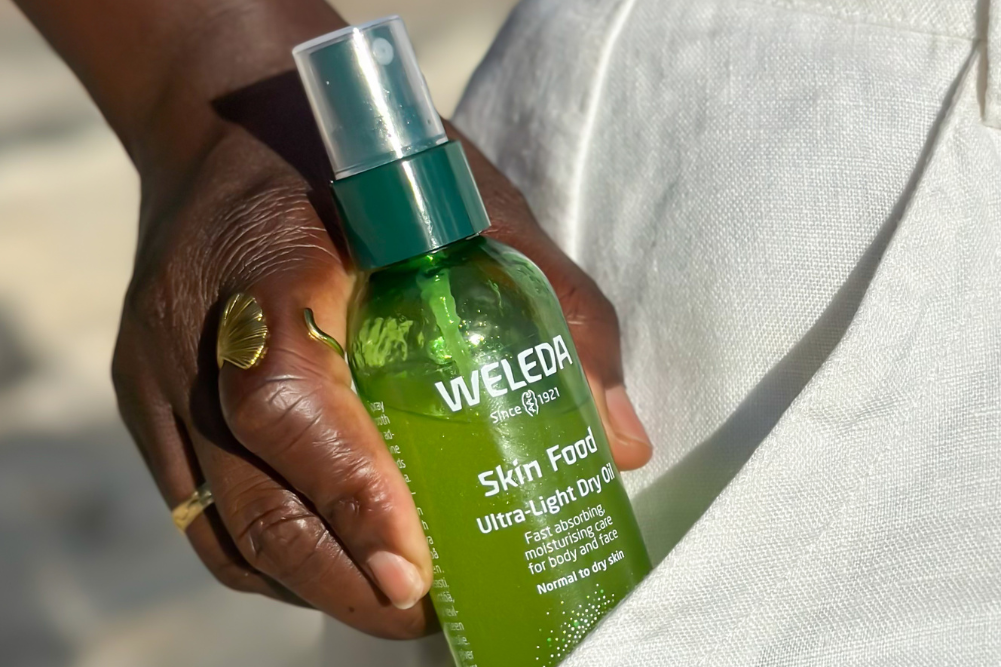Natural beauty 101: The power of protein
The common phrase “You are what you eat” is certainly true when it comes to protein. Did you know that your hair, skin and nails all contain high amounts of this impressive macronutrient? Which is why a protein deficiency can result in aged skin, brittle hair and weak nails. However, not all proteins can be synthesised by the body — some must be obtained through the food. Are you consuming enough of this powerful beauty food in your diet? Let’s find out.
Protein is an essential macronutrient required by the body for optimum health and functioning. Protein is created from 20 chemical building blocks called amino acids. Eleven of these can be manufactured by a healthy body, while the remaining nine (histidine, isoleucine, leucine, lysine, methionine, phenylalanine, threonine, tryptophan and valine) need to be obtained through the food you eat.
During stressful times, illness or other extreme physiological conditions the non-essential amino acids (arginine, cysteine, glutamine, glycine, proline and tyrosine) may also need to be acquired through food as the body may be too compromised to create them.
Your skin contains three different types of protein, the most abundant being collagen, which makes up around 75–80 per cent of your skin, elastin, which is a protein found within collagen, and keratin.
Protein is an essential macronutrient required by the body for optimum health and functioning.
Collagen and elastin are responsible for ensuring skin’s structure, integrity and youthfulness, helping to reduce wrinkles and fine lines. Collagen synthesis decreases with age and environmental factors such as smoking, sun damage, high stress, pollution and inadequate protein consumption, which can result in premature ageing and sagging skin.
Keratin’s role is to hold skin cells together and forms the outermost layer of the skin. You can think of keratin as the skin’s main barrier, protecting you from the external environment.
Keratin is the most abundant protein found in hair, making up 80–85 per cent of follicles, and is also a major protein component found in nails. Keratin functions as the structural component of hair and nails, keeping them strong while fighting breakage, frizz and flyaways.
How much protein do you need each day?
The recommended daily intake of protein varies depending on your life stage. Here is a breakdown of what you should be acquiring each day.
Infants
6 months 10g (1.43g/kg body weight)
7–12 months 14g (1.60g/kg body weight)
Children & adolescents
Boys
1–3 years 14g/day (1.08g/kg)
4–8 years 20g/day (0.91g/kg)
9–13 years 40g/day (0.94g/kg)
14–18 years 65g/day (0.99g/kg)
Girls
1–3 years 14g/day (1.08g/kg)
4–8 years 20g/day (0.91g/kg)
9–13 years 35g/day (0.87g/kg)
14–18 years 45g/day (0.77g/kg)
Men
19–30 years 52g/day (0.68g/kg)
31–50 years 52g/day (0.68g/kg)
51–70 years 52g/day (0.68g/kg)
>70 years 65g/day (0.86g/kg)
Women
19–30 years 37g/day (0.60g/kg)
31–50 years 37g/day (0.60g/kg)
51–70 years 37g/day (0.60g/kg)
>70 years 46g/day (0.75g/kg)
Protein-rich foods to enjoy
Not all proteins are created equally: some vegetarian sources of protein do not contain all nine essential amino acids and are therefore regarded as “incomplete proteins”. Animal proteins are “complete” as they contain all nine essential amino acids.
If you are vegetarian or vegan, you can still hit your daily protein requirements easily by mixing up the variety of proteins you enjoy throughout the day.
Vegetarian sources of protein
- Legumes: beans (adzuki, black, fava, kidney, lima, mung, pinto), chickpeas, edamame/soybeans, lentils, peas (green, snow, snap, split), peanuts, tempeh, tofu
- Nuts and seeds: almonds, cashews, chia seeds, hazelnuts, hemp seeds, linseeds, pecans, pistachios, sesame seeds, squash and pumpkin seeds, sunflower seeds, walnuts
- Wholegrains: buckwheat, Khorasan wheat, millet, oats, quinoa, rice, teff, wheat, wild rice
Animal sources of protein
- Organic poultry (chicken, duck, turkey) and a variety of seafood (crustaceans, fish, molluscs)
- Eggs
- Organic dairy foods including cheese, milk and yoghurt
- Organic, hormone- and antibiotic-free red meat including unprocessed beef, goat meat, lamb, mutton, pork and veal
Proteins to avoid
Bacon, hot dogs, sausages, deli meats and processed vegan “meats” such as vegan sausages and patties as they are heavily processed and contain minimal nutritional value. It’s best to steer clear of these and instead focus on more wholesome varieties.








